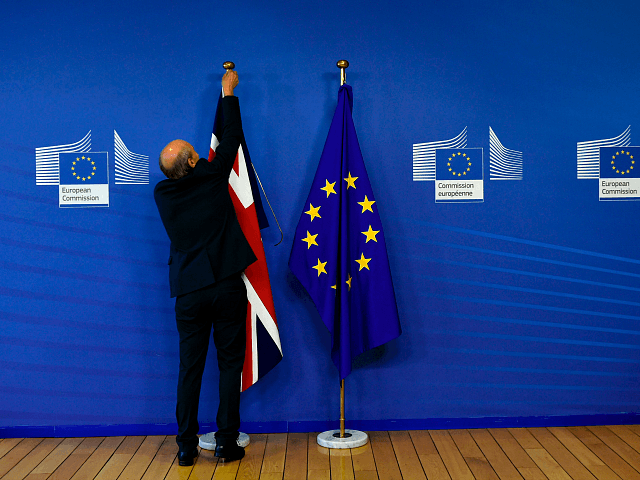A senior EU politician has told the BBC that Britain can expect a Brexit agreement “much broader and deeper” than the EU-Canada Comprehensive Economic and Trade Agreement (CETA) – previously the bloc’s most extensive trade deal.
Aleš Chmelař, Secretary of State for European Affairs for the Czech Republic (Czechia), told the BBC Today programme that his government “[hoped] that there will be a mutually agreeable settlement on trade issues, and we also hope that the UK will have specific access to the European market.”
“That’s something that we have negotiated, for example, with Canada; [a UK-EU deal] can be much broader, it can be much deeper,” he said – although he indicated that this might involve “certain commitments”.
Appearing on the same programme, Brexit campaigner and former Tory environment and rural affairs minister Owen Paterson said Britain would meet its “legal obligations” with respect to the current spending cycle, but should not pay for access to Single Market.
He disagreed with BBC presenter John Humphrys that “We need them more than they need us,” pointing out that Germany alone sold some 950,000 cars to Britain last year, and that the tariffs would “hit [the EU] harder” than the UK because the bloc runs a large trade surplus with its departing member.
Research by the Civitas think tank has indicated that this would indeed be the case, with the trade on World Trade Organization WTO) terms which ‘No Deal’ would entail seeing EU exporters facing tariffs totalling £12.9 billion, compared to just £5.2 billion for British exporters – who could be amply compensated for their losses through a combination of research investments, subsidies and tax cuts without breaking WTO rules.
EU leaders such as Hungarian foreign minister Péter Szijjártó have, for that reason, warning Brussels officials to drop their belligerent attitude on trade and work towards “the most comprehensive economic trade and investment partnership with the UK”, or else risk losing competitiveness and business to firms in Australia, the U.S. and elsewhere after Britain regains its power to strike its own trade deals and begins signing pacts around the world.

COMMENTS
Please let us know if you're having issues with commenting.